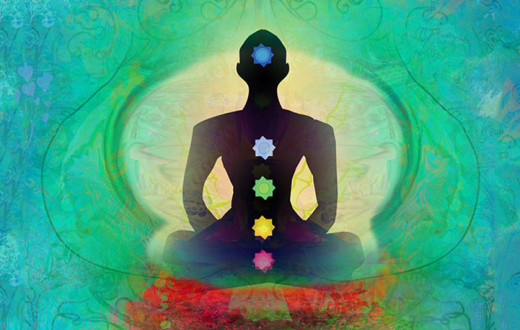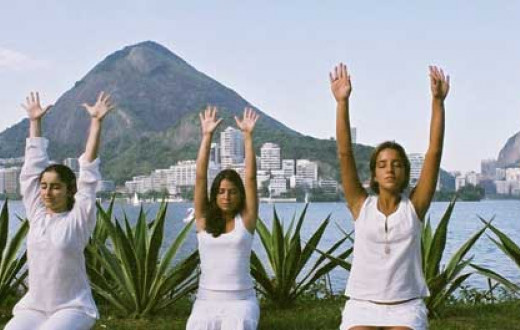20 Aug 2011
Mind is restless. How to control it?
Sri Sri Ravi Shankar:
Through practice and experience the mind will settle down. It is through experience that one feels dispassion/detachment (vairaagya). What is dispassion? As a child, you would get excited about cotton candy, as though eating it was the sole aim in life. Chocolate, cake and ice cream were everything to you. But as you grew older, you became indifferent to candies and chocolates and were drawn to attractive young men or women. With age, the looks of a person also ceased to attract your attention. This is known as dispassion.
In every human being’s life, some dispassion comes in naturally. But through knowledge, dispassion comes in more quickly. Otherwise, the dispassion does not mature and trickles in here and there. But if there is sharp intellect, knowledge and good satsang, dispassion comes in like a jet plane. Dispassion is not being apathetic, that everything is useless, pointless, but the attitude of having ‘been there, done that; I am above all this.’ A joyful, carefree state of being is known as dispassion.
Often, those you consider dispassionate are depressed. That is why some people are scared of those claiming to be dispassionate. Adi Shankaracharya has said, ‘Kasya sukham na karoti viraagaa’ meaning, ‘what kind of joy does dispassion not bring?’ All kinds of joy and comforts come naturally to you, without your making any effort. That is why through practice and dispassion this restless mind becomes still.
How can we attain self-control?
Sri Sri Ravi Shankar:
Self-control can be attained by your will. Once you say, I am not going to do this thing, I am not going to eat too much for the next three days, or I am not going to indulge in this thing for the next seven days, done. First, self-determination; second, fear, ‘Oh may be if I indulge too much I may have a problem’. Or someone tells you, if you don’t indulge in it for one month you are going to get a lottery. Then you will say, ‘no, come what may, I will not indulge.’
So to get rid of bad habits, there are three ways: One is greed; if someone tells you that you will win a lottery if you do not indulge in this bad habit, you will not do it. Second is fear; if someone tells you that your lungs will collapse and you will die within two days if you smoke, then no one will touch a cigarette. Third is Love. I don’t know of a fourth way. Tell me if you know.
When we do Sadhana, do we connect with the soul or with God?
Sri Sri Ravi Shankar:
Are they separate or one? Are waves and the ocean separate or one? The wave is soul and the ocean is God. When there is ‘I’consciousness, it is the soul, and when the ‘I’ness is at rest, it is God. So no one has ever gone or can go outside of God.
Now look, can you live without oxygen? But sometimes, when it is extremely hot, you feel suffocated even though air is there. When you sit under the fan you can feel the air. Similarly, Satsang and meditation are like the fan. If you sit with the fan, you will feel the breeze. This is known as being in the ‘presence’ (Saanidhya). It is not that the ‘presence’ is not there, it is there but we begin to experience it, as we feel the breeze when we sit near the fan. Similarly in Sadhana, we begin to experience what is God. We experience Love.
I think about you all through the day, every second, is this a defect in me or is it okay?
Sri Sri Ravi Shankar:
Well, it’s not possible to think all through the day. If the thought comes now and then, here and there, then they come and they go. Treat them like any other thought that comes and goes, doesn’t matter. We are all united in a very subtle level beyond the thoughts. Thoughts coming and going is natural. You can’t do anything about it.
I find it difficult to say ‘no’ to people or situations. How do I say ‘no’ without hurting?
Sri Sri Ravi Shankar:
When you were a child, you didn’t want to go to school. If your parents had said yes to you not going to school and didn’t say no to you, where you would have landed? Do you see what I am saying? Sometimes saying ‘no’ is for good of the person. You must say ‘no’.
Don’t worry about if you hurt them or not. Your saying ‘no’ is good for them, beneficial for them, is much more important than your trying not to hurt them. When you do exercise, it pains. If it pains, your exercise is good. Isn’t it? No pain no gain. If your saying ‘no’ is hurting others for no reason, then it is a different question. You should use your brain there.
Dear Guruji, is there a karmic purpose of having children? What should be the ideal role of a parent in a child’s life?
Sri Sri Ravi Shankar:
Ideal role for the parent is, you gain knowledge and bring the knowledge to them, make them good citizens, helpful for the society, not being selfish, not being self-centered, but one who would work for the world.
People say that I am not aggressive. Do I have to be? How can I be?
Sri Sri Ravi Shankar:
To do something good if you need to be aggressive, you can show some aggression; but you know when you are meditating you don’t need to do that at all. You know, you don’t need to be aggressive, things will happen. People will say everything; if you are aggressive someone will say you are too aggressive. Somebody will say something so don’t go by everyone’s opinion. You see what you want to do.
Question asked by Maharajji: All sages and scriptures have said that the greatest beneficence of human existence is the attainment of God, and God realization is the doorway to communion with the soul. Now the soul is already present and yet, in a sense unattained. So how can this impression be erased?
Sri Sri Ravi Shankar:
When the mind is outwardly focused, it cannot recognize the soul. It is not aware of its own existence. For instance, when we are looking around at others, we lose awareness of our own body. We are not aware that we are breathing when we are looking outside. Like when you sit in the cinema theatre, all you can see is what is happening on the screen. You have no idea where you are, whether you are tired or your body is healthy. In sleep we forget all our pains and sorrows, similarly when the mind is outwardly directed, it forgets itself and loses awareness (remembrance) of itself.
We tend to get absorbed in the scenery and forget about the Self.
Now when we sit down with our eyes closed, unable to see what is happening outside, and bring our attention to our self, our breath, then we become aware of the body. Do you know why the body hurts? Your body wants to draw your attention towards itself. When the head hurts, the most beautiful scenery is not appealing. The mind is drawn to the pain in the head or the leg. So pain has the ability to involuntarily pull the attention of the mind to the body. When we consciously bring our attention to the body, it is yoga nidra or meditation. Similarly, when the mind is entangled in the body, then there is no awareness of the soul. You have all experienced in meditation, awareness shifts from the body to thoughts, and finally when it is more inwardly drawn, there is awareness only of ‘I Am’, not where or who I am. From this I Amness to ‘Everything Is’ – is God. A step deeper in meditation lies this awareness that everything ‘Is’ – these trees, mountains, river, this body are no different from one another. I am not anything special - just the awareness of existence. So it is outward focus that leads to forgetfulness. It is not as though the head did not exist before the headache, it did. Similarly, to experience the soul one has to empty the mind of all impressions. This awareness is lost in the tendencies of the mind. That is why it is written in the Vedas to repeatedly practice meditation or erasure of all mental impressions. Just as we alternate between waking and sleeping, repeatedly erasing mental impressions through meditation establishes us in our Self. Those who sleep soundly are alert when awake. In a similar fashion, meditation helps maintain alertness in the waking state.
We feel inspired to work only when we find that something is not right; this is not right or that has not been done correctly. When we are involved in activity, we should feel that which is not okay and needs to be corrected. But when we are in meditation, we should feel that everything is fine.
A fool does the reverse. When he sits with his eyes closed, he focuses on all that is not right. In activity, he accepts and overlooks everything, the corruption, the inefficiency. Such a person is useful neither to the world nor to himself. That is why Lord Krishna has said in the Gita that knowing when to act and when not to act is the sign of saatvikta.
So in meditation relax with the thought that all is well. Anyway, for how long can you fix this world, sixty, seventy years? This world has been in existence since ages and will continue to exist. What will you do if a demon is born a couple of hundred years from now? Know that God is taking care of this world. With this thought one should sit in meditation, then Samadhi will happen, and bliss will arise. Once bliss is awakened, you cannot continue sitting in Samadhi like a stone. Since you have taken this human birth you have to engage in activity. When in activity, recognizing all that is not right awakens enthusiasm within us.
This entire world is God. Serving this divine world is itself Pooja. That is why it is said that this entire world is made up of rhythmic vibrations and from these vibrations ambrosia (Amrit) is produced. And what do we do in Sudarshan Kriya? Through the rhythmic breath we become aware of the rhythm of the soul (Self). It is only through these vibrations that bliss can be awakened. If you speak to modern scientists, they will admit that this world is nothing but vibrations.












































